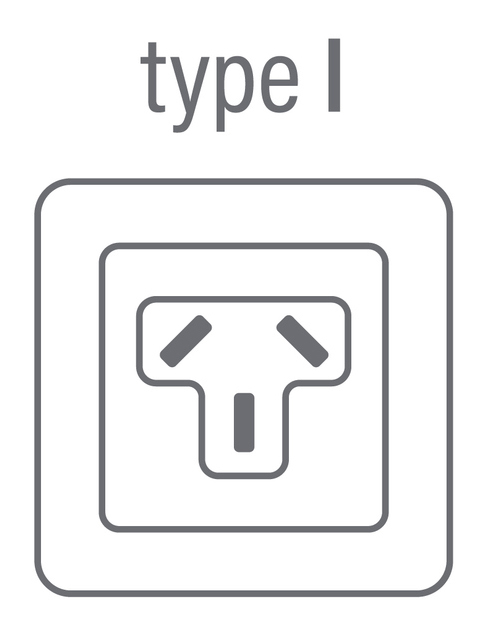Australia
![]()
TRAVEL INFORMATION QUICK LINKS
Navigate your travels seamlessly with vital information on passport and visa requirements, plug types, currency exchange, and other essential details to make your journey hassle-free.
Stay informed and prepared for your journey with these essential health and safety tips to ensure a smooth and worry-free travel experience.
A handy guide offering suggested tipping amounts to enhance your travel experiences with ease and respect for local customs.
Prepare for your adventure with insights into the weather of your destination, offering valuable information to help you pack and plan accordingly for a comfortable and enjoyable journey.

ESSENTIAL TRAVEL INFORMATION
PASSPORT REQUIREMENTS
- Your passport must be valid for the length of stay planned in Australia.
VISA REQUIREMENTS
- All travelers to Australia, other than Australian and New Zealand citizens, are required to hold a valid visa to travel to Australia.
- Most US citizens may apply for an ETA (Electronic Travel Authority). The cost for the ETA is $20 (Australian dollars), and it is valid for three months within a twelve-month period from the date of grant.
- Application for a tourist visa costs $100 Australian dollars and can be completed online, in person, or by mail. With this visa, you can apply for a stay of up to twelve months.
- Please note that American citizens that overstay their ETA or visa, even for short periods, may be subject to exclusion, detention, and removal.
- Notice for passengers arriving to Australia via New Zealand: Beginning October 1, 2019, all travelers from 60 visa waiver countries and all cruise travelers (excluding Australians), will be required to hold an Electronic Travel Authority (ETA) when transiting through New Zealand, even if New Zealand is not their final destination.
- Read more at: US Department of State Profile for Australia
LANGUAGE
- Although Australia does not have a national language, the most widely spoken language in the country is Australian English.
CURRENCY
- The unit of currency is the Australian Dollar (A$ or AUD).
- As of August 1, 2014, Australia operates using only the "chip and PIN" system - credit cards with a computer chip instead of a magnetic strip that require a PIN for use. All major credit cards with a computer chip and PIN number, as well as traveler's checks, in any international currency, are widely accepted.
TIME ZONE:
GMT +10 (New South Wales, Queensland, Capital Territory), GMT +9:30 (Northern Territory, South Australia), GMT +8 (Western Australia)VOLTAGE:
230/240 Volts AC, 50HzPLUG TYPE:
Australia uses the type I plug.
IMPORT & EXPORT RESTRICTIONS
Visitors to Australia over age 18 may bring goods not exceeding 900 Australian dollars and limited to:
- 2.25L of alcohol
- 250 cigarettes or 250g of tobacco (one opened packet of 25 cigarettes is allowed)
- For detailed import and export regulations, please consult the IATA Travel Centre.

TRAVELERS’ HEALTH & SAFETY
REQUIRED IMMUNIZATIONS
- Although yellow fever is not a disease risk in Australia, the government requires travelers age one year and older arriving within six days from countries where yellow fever is present to present proof of yellow fever vaccination, including São Tomé and Príncipe, Somalia, Tanzania, and the Misiones Province of Argentina.
- This includes airport layovers of 12 hours or more.
- Please visit the CDC.gov website for recommended immunizations to visit Australia.
OTHER SAFETY NOTES
- Petty theft and other personal property crimes occur in major cities. Be vigilant of your surroundings.
- If traveling to the Murray River region or the Outer Torres Strait Islands, vaccination for Japanese encephalitis may be recommended by a travel medicine professional.
- Take precaution against insect bites. While malaria is not found in Australia, other diseases spread by insects such as dengue and Ross River virus do occur.
- Sunblock is a must in Australia, but ensure that the sunblock is legitimately a "reef safe" product in order to assist the country with their sea conservation efforts.
LOCAL LAWS AND CULTURAL CONSIDERATIONS
- Accessibility: Australian law prohibits discrimination against individuals with disabilities and mandates access to buildings for individuals with disabilities. However, physical accessibility may vary at tourist spots, especially on beaches or in the historic downtown areas of major cities that were constructed in the 1800s.
- LGBTQIA+: There are no legal restrictions on same-sex sexual relationships in Australia, and same-sex marriage is allowed under the law. However, attitudes may vary among individuals.
- Prescription drugs: Please contact the embassy for specific questions about your prescription medications. DO NOT attempt to bring cannabis-derived products into or out of Australia. Penalties for possession or use of illicit drugs are strict and carry lengthy jail sentences.

GRATUITIES
- Porter: AUD 2 per bag
- Guide – full day: AUD 30 per day
- Guide – half day: AUD 20 per day
- Driver – full day: AUD 20 per day
- Driver – half day: AUD 15 per day
- Resort/lodge staff: AUD 10 per day
- Resort/lodge guide; AUD 10 per day
- Train staff: AUD 25 per day

WEATHER
- In the southern parts of Australia (e.g., Melbourne, Sydney), summers are typically warm to hot, with temperatures ranging from 25 to 40 degrees Celsius (77 to 104 degrees Fahrenheit).
- In the northern parts (e.g., Brisbane, Cairns), summers are hot and humid, with temperatures often exceeding 30 degrees Celsius (86 degrees Fahrenheit) and occasional tropical storms.
- Autumn is generally mild and pleasant in many parts of Australia, with gradually cooling temperatures. Daytime temperatures may range from 15 to 25 degrees Celsius (59 to 77 degrees Fahrenheit).
- Winters in the southern parts can be cool to cold, with temperatures ranging from 5 to 20 degrees Celsius (41 to 68 degrees Fahrenheit).
- Northern parts, particularly in Queensland, experience mild winters with temperatures rarely dropping below 10 degrees Celsius (50 degrees Fahrenheit).
- Spring sees a gradual warming of temperatures, with blooming flowers and increasing daylight hours. Daytime temperatures may range from 15 to 30 degrees Celsius (59 to 86 degrees Fahrenheit).